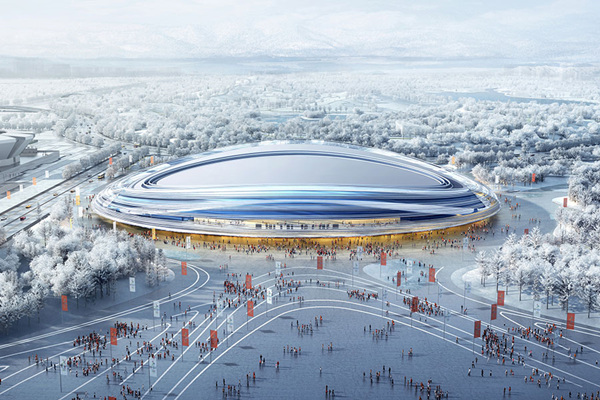
The International Olympic Committee’s Coordination Commission has lauded Beijing’s preparations and legacy plans for the 2022 Winter Olympics ahead of its third inspection visit.
The commission, chaired by IOC vice-president Juan Antonio Samaranch, kicked off a two-day visit to Beijing on Monday to assess the host’s preparation for the Games and to discuss key issues with local organizers, international winter sports federations and stakeholders.
Samaranch, the son of the late IOC president of the same name, encouraged Beijing to follow the reform proposals highlighted in the Olympic Agenda 2020 and other guidelines to host not necessarily the grandest but the most intelligent Games with an emphasis on legacy.
“These have to be the most intelligent Games ever, not the biggest, not the most expensive,” Samaranch said in his opening remarks to the plenary meeting on Monday. “The legacy is critical. No one can afford anymore to throw a wonderful two-week party.”
Aimed at cutting the costs of staging the Games, the IOC introduced Agenda 2020 recommendations in 2014 and the New Norm guidelines in February during the 2018 Pyeongchang Winter Games to ensure that future hosts organize the Games in an economical and sustainable way.
Beijing’s commitment to use its abundant 2008 Summer Games’ legacies and to integrate the 2022 Winter Olympics into regional development, along with its winter sports promotional plans, is in line with the IOC’s reform proposals, Samaranch said.
“These Games in 2022 are going to bring a legacy far more important than infrastructure,” said Samaranch, who officially led the CoCom for the first time after replacing former chair Alexander Zhukov of Russia at the end of 2017.
Formed by IOC executives and officials of major winter sports federations, the CoCom visited northwest Beijing’s Yanqing county and co-host Zhangjiakou in Hebei province over the weekend, followed by key venues in downtown Beijing on Monday afternoon.
They will join Beijing organizers and local officials on Tuesday at workshops focusing on Games-related elements including sports program, marketing, stakeholder services and media operations.
Gou Zhongwen, the executive president of the Beijing 2022 Organizing Committee, said Beijing’s preparations for the winter sports gala is on track, citing smooth progress in new venue construction, refurbishment of existing facilities, marketing efforts and cultural promotion.
“In the coming phase of preparations, we will strengthen communication and cooperation with the IOC and the international federations and hear more of their suggestions to make sure the 2022 Games are excellent and sustainable,” said Gou, who is also China’s sports minister.
The Beijing 2022 Winter Olympics will use 12 competition venues, three of which were built for the 2008 Summer Games and two run by public and private owners.
The construction of the new alpine ski center in Yanqing and the snow park for freestyle skiing and snowboarding at the Genting Resort in Zhangjiakou will be finished first – by the end of 2019 – while the construction of other new facilities, including the National Speed Skating Oval, and the remodeling of existing ones, will be completed in 2020.
“Summarizing it, at this stage, you’ve done more than that could be expected. We feel very confident in what is going on,” Samaranch said.


